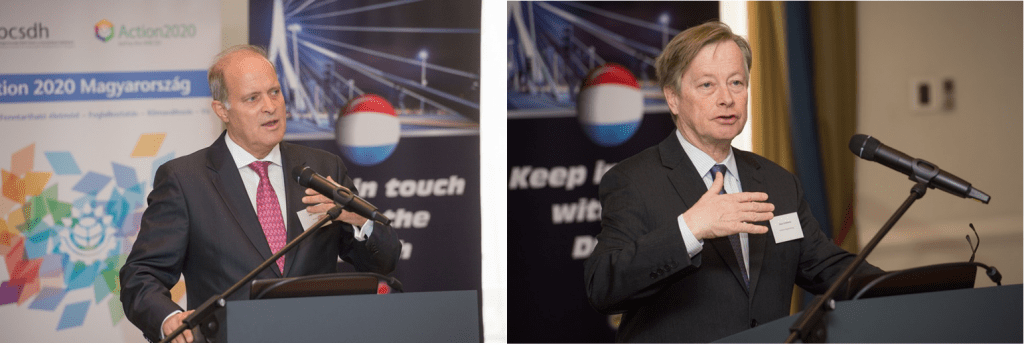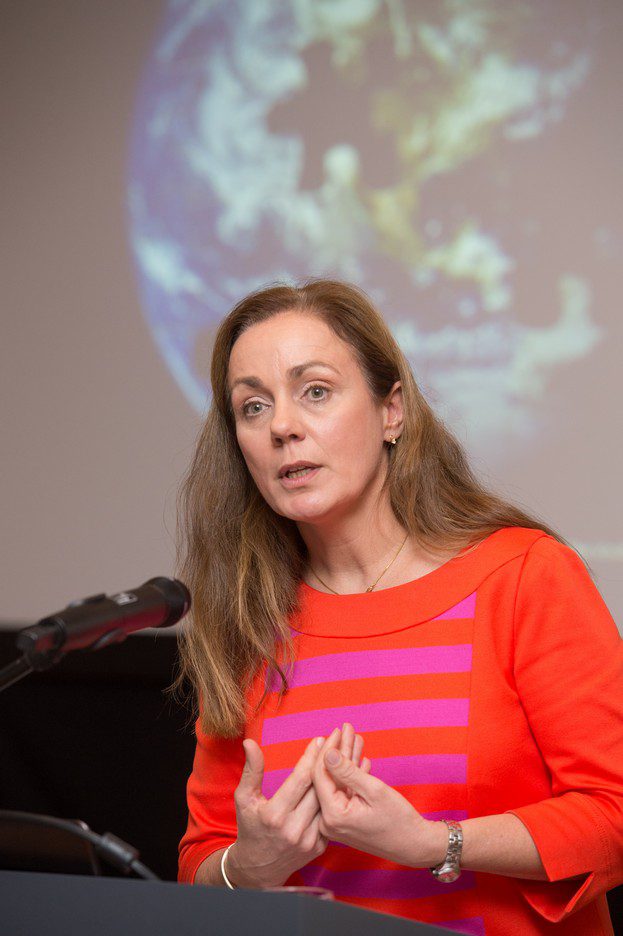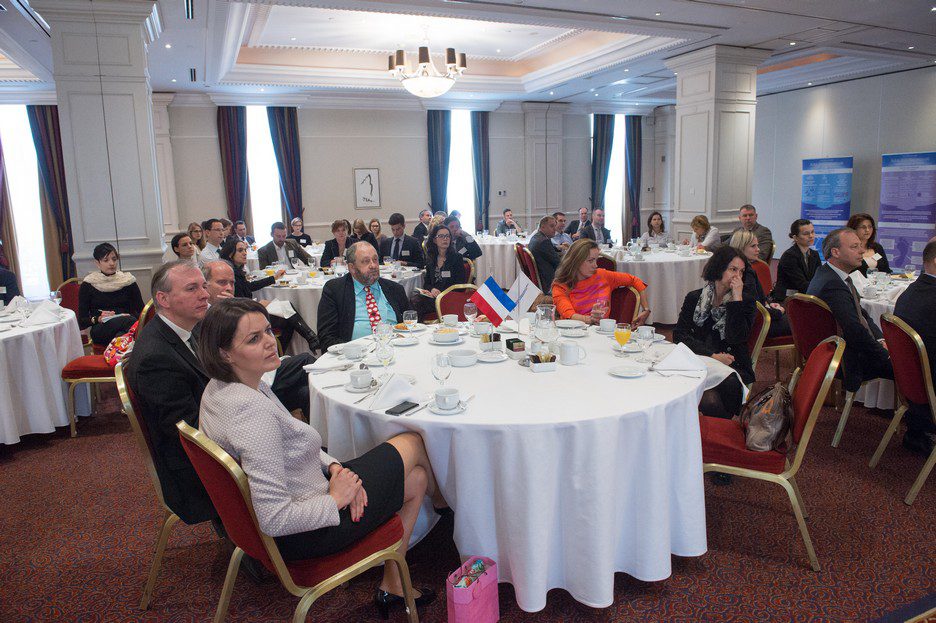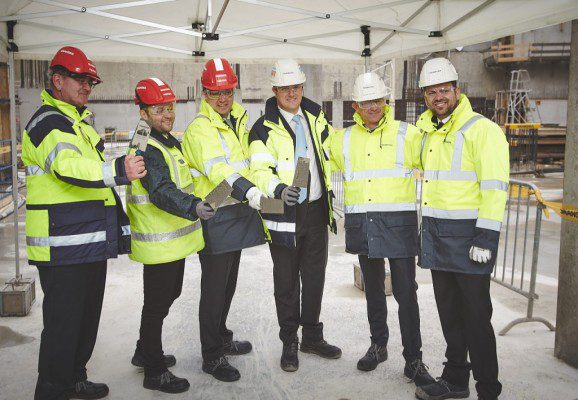With a high level of corruption, can a country competitive? Can transparent operations increase the value of a company? Can having a dominant position be legitimate? Is being listed on the stock exchange a burden or blessing? Can publishing a sustainability report help to develop a company? Is it possible to operate ethically in an unethical environment?
The answers to such questions were sought out by ‘Future Leaders’ on the third professional training day, hosted by Richter Gedeon Plc.
József Péter Martin, Director of Transparency International Hungary, despite presenting shocking data about corruption in Hungary also stated that corruption can never be eliminated entirely but that decreasing it to an ‘optimal’ level should be a basic goal. Maintaining a good business and institutional environment in terms of transparency and a low level of corruption are essential to fostering long term sustainability and to the long term profitability of a company.
Let’s have an end to seeing stakeholders as enemies
Attila Chikan Jr., CEO of Alteo presented details about the pros and cons of transparent corporate operations from his own corporate experience. If we compare companies, ceteris paribus, those which are listed on the stock exchange are rated as being more valuable than non-listed ones: this is based on the advantages of liquidity and on their more transparent way of operating which is important to maintain investor confidence.
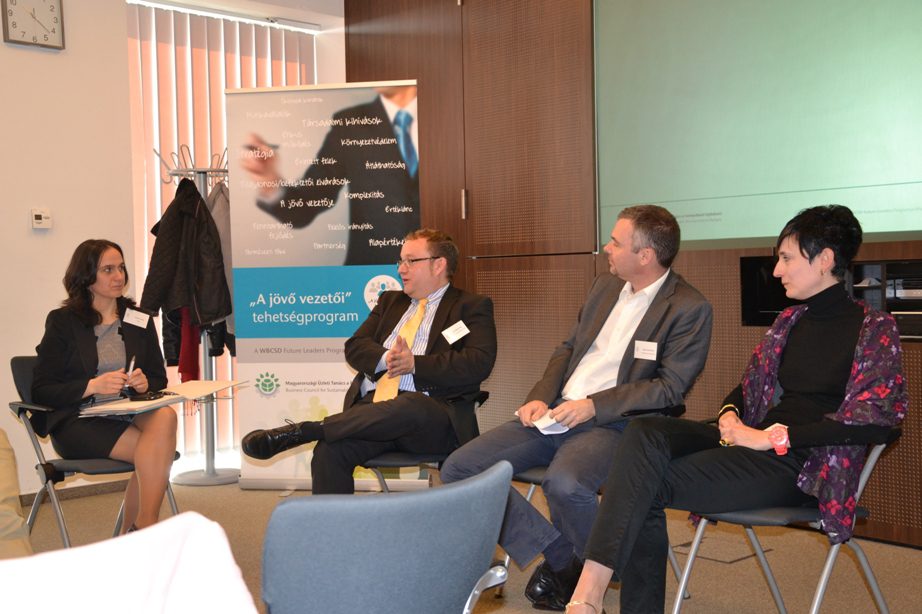
According to Attila, business success depends on seeing stakeholders as ‘friends’, not as enemies – of course, within reason. Such transparency does not mean sharing business secrets. The most important thing is compliance with the principle of ‘essentiality’: companies should not desire to ‘talk’ about everything, but only about important things – however, communicating about relevant information, processes and stories must be the responsibility of every company.
Passive participation in a cartel could mean committing a felony
Lawful operations and ethical business are closely-related issues – believes Dr. Orsolya Fazekas, legal counsel. Having a dominant position in a field of business is not legally forbidden and there may sometimes be a reasonable business explanation for this, but the abuse of a dominant position may have legal consequences. The following fact may be surprising, but passive participation in a cartel could have also legal consequences.
Walk around and look at the business context
Participants talked with Barbara Jánosa about the ethical business practices of Telenor. They discussed its value-based business roots, their form of realisation and the programs which can help to improve the ethical operations of small and medium sized companies.
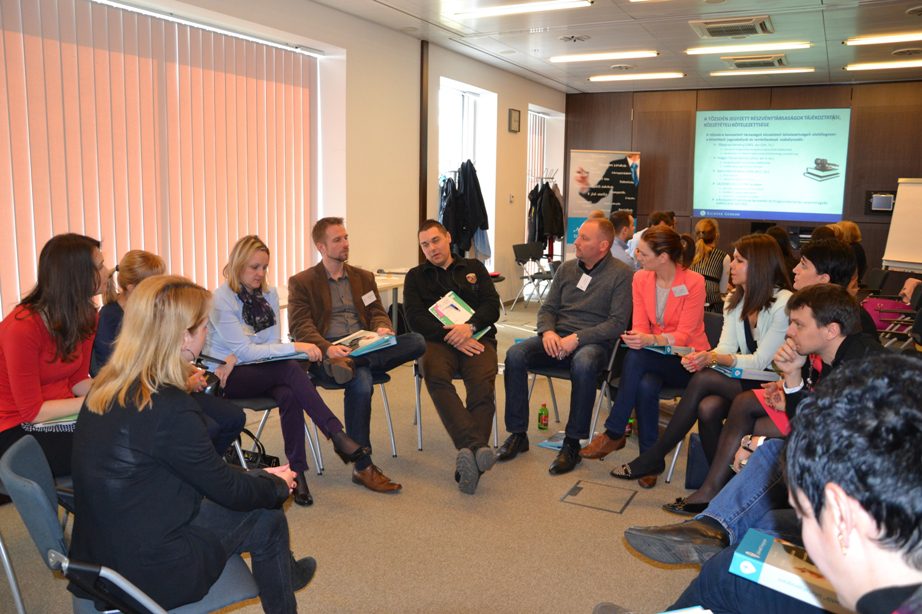
Risk analysis and quick reactions
Zsuzsa Beke introduced the participants to the details of exchange advice / stock market reports through the example of Richter: this included an overview of expectations, benefits, risks, disadvantages and opportunities. Related corporate governance needs and their correspondence with ethical business were detailed using pharmaceutical industry practices, in doing so highlighting some interesting ethical dilemmas. In a case study about a competitor’s acquisition of an unethical market position a decision dilemma arose concerning ‘immediate reaction, high risk taking’ vs. ‘less impactful reaction, but risk minimization’.
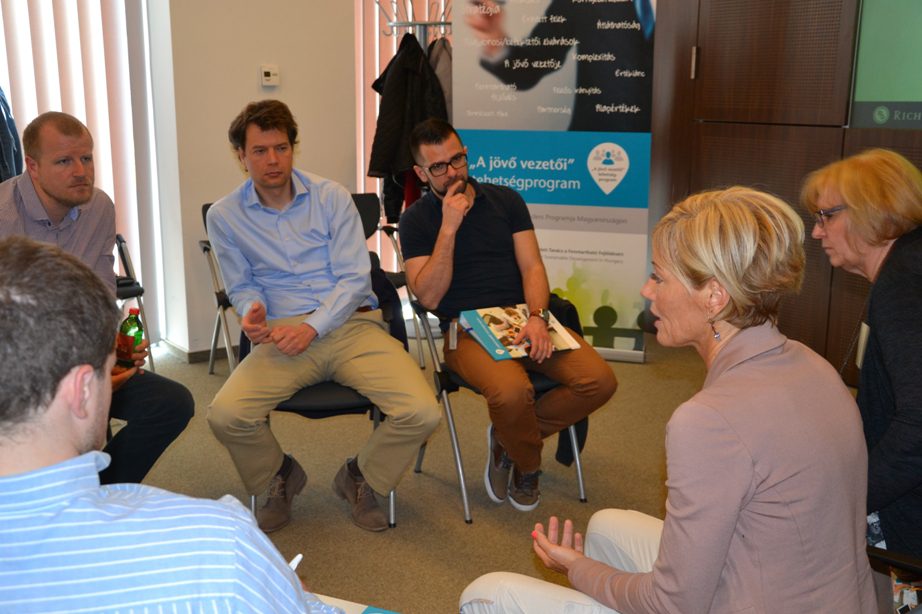
How could we improve without revealing our situation?
István Szabó, KPMG’s CSR regional manager, gave an introduction and general overview of non-financial/sustainability reporting, which is increasingly expected by the public. He stressed that a report is not a ‘result’, but a description of a process which can really help a company develop.

Should we report about this?
We visited a fictitious management meeting in the afternoon where a CEO and Communication and Corporate Relations Director set out their stall against sustainability reporting with various objections and a great deal of scepticism. Every team (and their facilitator) had to offer up an HR, a financial and a marketing director to convince the sceptical management to publish detailed company data and information.

Is it possible to operate ethically in an unethical environment?
Closing the day, Erik Bogsch, CEO of Richter spent one hour with us in informal conversation. According to him, in spite of ethical challenges in industry in Hungary and in general it is possible to operate ethically even if this means creating a competitive disadvantages in the short term. Taking the ethical path is an ‘easy decision’ for the sake of long term success and sustainability. Decisions are needed and must be followed through, even if they seem difficult. While most Hungarian companies and their leaders say that they ‘ Could not plan further than one year due to the unpredictable environment’, the pharmaceutical industry innovates and develops using 5-15 year strategies.

More picture here

